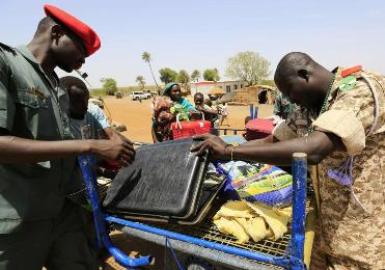Sudan announces resumption of border trade with S. Sudan
February 12, 2018 (KHARTOUM) Sudan has announced resumption of the border trade with South Sudan upon directives of President Omer al-Bashir to activate the border trade with the neighboring countries.

In a press release seen by Sudan Tribune Monday, al-Sir said the resumption of the border trade with South Sudan comes within the framework of the directives of President al-Bashir and to implement the outcome of the national dialogue.
He underscored the move aims to push forward the government development efforts, saying it would curb the commodity smuggling.
According to al-Sir, the resumption of border trade with South Sudan will also contribute to increasing government revenues.
He called to draft a unified vision between the two countries in order to activate the border trade and facilitate the flow of commodities.
“We affirm our efforts to promote border trade with the neighboring countries, which would enable us to maintain good and integrated relations in all walks of life” he said
South Sudan seceded from Sudan on July 9th, 2011 following a referendum on whether the semi-autonomous region should remain a part of the country or become independent. 99% of the southern voters chose independence.
Relations between the two nations soured after South Sudan’s independence following a series of disputes over a number of issues.
In September 2012, both Sudan and South Sudan signed a series of cooperation agreements, which covered oil, citizenship rights, security issues, banking, border trade among others.
In March 2013, the two countries signed an implementation matrix for these cooperation agreements. However, the execution of the agreements didn’t go according to the plan.
